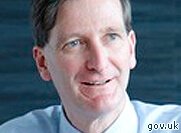High profile MPs have raised fears over the Government’s counter-extremism drive, during a debate on forthcoming legislation.
On Tuesday, former Attorney General Dominic Grieve and Harriet Harman, who chairs the Joint Committee on Human Rights, said more clarity was needed on proposed Extremism Disruption Orders (EDOs).
The Government announced its proposed Counter-Extremism and Safeguarding Bill last week.
Unclear
Mr Grieve said he had “considerable concerns” about how the Government’s counter-extremism legislation could be framed to protect freedom of expression. He stressed that free speech “applies even when the matters expressed are ones with which we heartily disagree”.
Mrs Harman, former Deputy Leader of the Labour Party, noted that the Government’s approach seems to assume that religious conservatism is the “starting point in the quest to tackle violence”.
She added that if there are to be EDOs under the new Bill, they cannot simply be used to disrupt views “of which the Government disapprove”.
Referring to the Government’s idea of what constitutes extremism, she added that it is “far from clear that there is an accepted definition”.
Defend Free Speech
In January, The Christian Institute along with other supporters of the Defend Free Speech campaign wrote to the Home Office asking for a consultation on EDOs.
Responding to the criticism of the Bill on Tuesday, Home Secretary Theresa May announced that a consultation would take place.
Earlier this week, one of the most senior policemen involved with the Government’s counter-terrorism drive voiced concerns that the upcoming legislation could lead to people being criminalised simply for expressing unpopular views.
Chief Constable Simon Cole, the police lead for the Government’s Prevent programme, said plans to counter extremism could lead to ‘thought policing’.
Thought police
In an interview with The Guardian, Mr Cole said the Government’s plans may not be enforceable and could make police officers judges of “what people can and cannot say”.
He argued that we have to “have some limits about what you can say but they need to be as broad as they possibly can be”.
Cole added: “Unless you can define what extremism is very clearly then it’s going to be really challenging to enforce”.
“We don’t want to be the thought police”.

